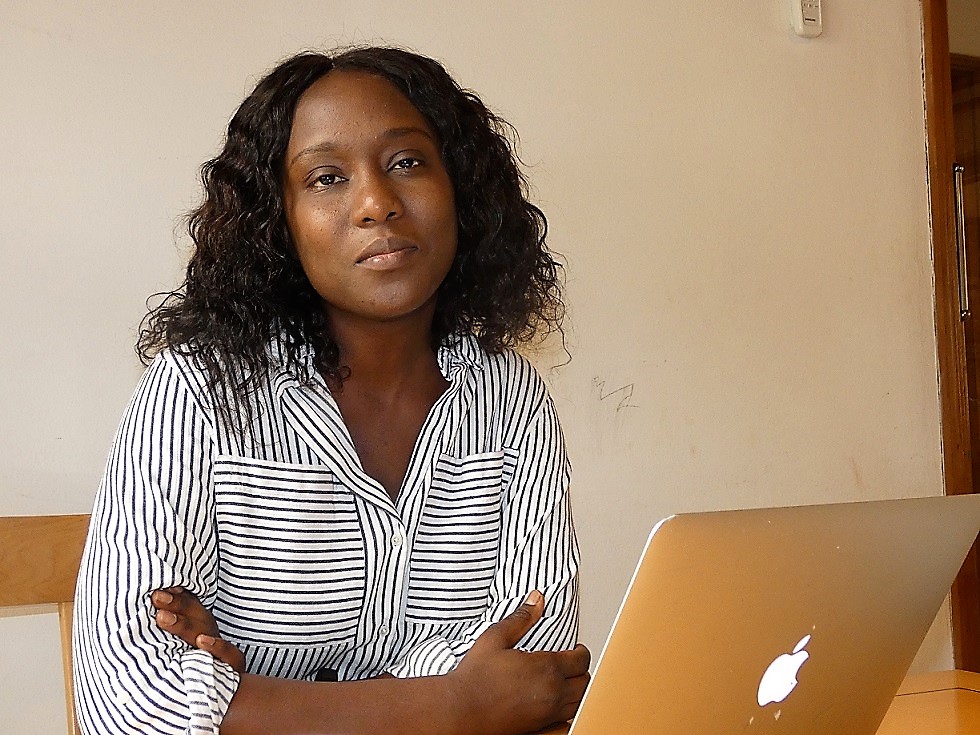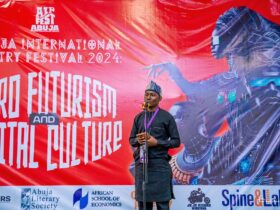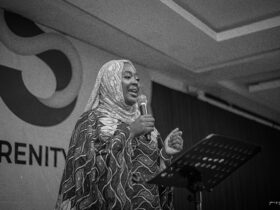
Konya Shamsrumi: What is the process of writing a poem like for you? Is it a lot of hard work or easy?
Alison Ojany: I love writing poetry. I’d call it a possession. My muse takes over. I get the first line in my head, after that I cannot let it go until the emotions are distilled into verse. The words, for me, are like disembodied spirits. Unsettled and roaming. They only find peace once they are re-birthed into poems. I breathe life into them and they are exorcised from me.
Konya Shamsrumi: Please describe your sense of identity in this or any possible world in imagery or metaphor?
Alison Ojany: I like the analogy of being a cartographer – mapping the ideas, drawing links between them, feeling their contours and their boundaries. My pieces help me interpret reality. Maps are a powerful thing, and we need to question them. On our continent a few lines have resulted in so much bloodshed and poverty, as the world sought to simplify our complexity into something simple and easy to manipulate. I see the same thing with narratives in writing. It is our duty to articulate accurately, as well as beautifully, what the human condition really is.
Konya Shamsrumi: If any of your poems could literarily save a person’s life, which poem would it be and can you describe the person whose life you think it would have saved?
Alison Ojany: My poem, Nesting. It is a poem about acceptance, embracing that point in life when your soul finally settles in the body and you make peace with the past. The poem has words of comfort directed at anyone who is fearful of the great dips in life. It tells them you will make peace with it or it will make peace with you. It is about how as you mature, you stop caring about what people think.
Nesting
Broken one,
I have seen your despair
The weight of these things
To have held your tongue in mine
Let those words roll out so that I may speak like you
They are not mine, these phrases
They are not my offspring
This confusion
All of these are yours
Reared and tended such ugly things. All these are yours
Languish with me
Settle your feet on my shifty sands
You wont.
Your foundation is strong and so beloved
And I, an interloper, can only pretend to hate.
I place a poultice to my wounds, these sores that your words have tunneled
Your eyes were a mist of language, I heard your true voice.
Not the echoes.

Konya Shamsrumi: What does Africa mean to you, as potential or reality?
Alison Ojany: As someone who has lived all over Africa, I find the question problematic. People abroad assume we are one big country. As if someone who grew up in Berlin had the same lived experience as someone in London: Africans all united under a red sun sweeping over the Savannah as we tend to our cows and our malnourished children.
Nevertheless, at one level you do feel more acceptance on this continent than in others. There are many things that bond us – yes our despots, but also our humour, and some shared sense of wrong, as well as a shared sense of optimism for the future and present. So, it is “Home”. However I sometimes feel I never fully belong in Africa, or even just in my own country. I have a sense of being an Inzile, at home but also an outsider, trapped inside tribal and post-colonial narratives.
Konya Shamsrumi: Could you share with us one poem you’ve been most impressed or fascinated by? Tell us why and share favourite lines from it.
Alison Ojany: Again, this discusses the phase of life, when you learn to smile at yourself. How else could I put it. It carries the musk of someone who has truly lived. The poem for me would be Love after Love. Derek Walcott. The lines –
The time will come
when, with elation
you will greet yourself arriving
at your own door, in your own mirror
and each will smile at the other's welcome,
and say, sit here. Eat.
You will love again the stranger who was your self.
Give wine. Give bread. Give back your heart
to itself, to the stranger who has loved you
Alison Ojany is a poet and writer. She has written poems and short stories which have been published in Africa and Europe, and is currently finalizing her first novel. She currently lives in Abuja with her husband and two children.













Leave a Reply